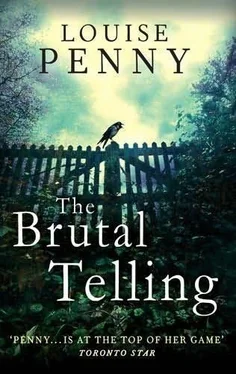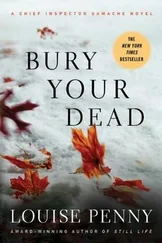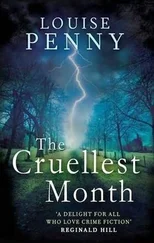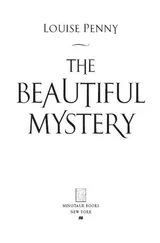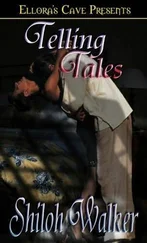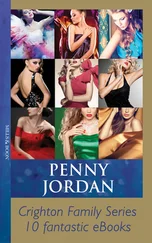But while facts might be enough for a prosecutor, a judge, a jury, they weren’t enough for Gamache. He needed more. He needed motive. That thing that could never be proved because it can’t be seen.
What drove a man to slaughter?
And that’s what had sealed it for Gamache. As he’d been walking back to Three Pines, having ordered the Parra place searched yet again, he’d thought about the case. The evidence. But also the malevolent spirit behind it.
He realized that all the things that pointed to the Parras’ possibly doing it also applied to Olivier. Fear and greed. But what tipped it toward Olivier was that while the Parras had shown little inclination toward greed, Olivier had wallowed in it.
Olivier was afraid of two things, Gamache knew. Being exposed, and being without.
Both were approaching, both threatening.
Gamache sipped his coffee and thought again about those totem poles in Ninstints, rotting, falling, fallen. But they still had a story to tell.
It was there the idea had been planted. That this murder was about tales told. And the Hermit’s carvings were the key. They weren’t random, individual carvings. They were a community of carvings. Each could stand on its own, but taken together they told an even bigger story. Like the totem poles.
Olivier had told tales to control and imprison the Hermit. The Hermit had used them to create his remarkable carvings. And Olivier had used those carvings to get wealthier even than he had dreamed.
But what Olivier hadn’t appreciated was that his stories were actually true. An allegory, yes. But no less real for that. A mountain of misery was approaching. And growing with each new lie, each new tale.
A Hungry Ghost.
The wealthier Olivier grew the more he wanted. And what he wanted more than anything was the one thing denied him. The contents of the little canvas sack.
Jakob had come to Three Pines with his treasures, almost certainly stolen from friends and neighbors in Czechoslovakia. People who had trusted him. Once the Iron Curtain had collapsed and those people could leave, they started asking for their money. Demanding it. Threatening to show up. Perhaps even showing up.
So he’d taken his treasure, their treasures, and hidden it and himself in the woods. Waiting for it to blow over, for the people to give up. To go home. To leave him in peace.
Then he could sell it all. Buy private jets and luxury yachts. A townhouse in Chelsea, a vineyard in Burgundy.
Would he have been happy then? Would it have finally been enough?
Find out what he loved, and maybe then you’ll find his murderer, Gamache had been told by Esther, the Haida elder. Had the Hermit loved money?
Perhaps at first.
But then hadn’t he used money in the outhouse? As toilet paper. Hadn’t they found twenty-dollar bills stuffed into the walls of the log cabin, as insulation?
Had the Hermit loved his treasure? Perhaps at first.
But then he’d given it away. In exchange for milk and cheese and coffee.
And company.
When Olivier had been taken away Gamache had sat back down and stared at the sack. What could be worse than Chaos, Despair, War? What would even the Mountain flee from? Gamache had given it a lot of thought. What haunted people even, perhaps especially, on their deathbed? What chased them, tortured them and brought some to their knees? And Gamache thought he had the answer.
Regret.
Regret for things said, for things done, and not done. Regret for the people they might have been. And failed to be.
Finally, when he was alone, the Chief Inspector had opened the sack and looking inside had realized he’d been wrong. The worst thing of all wasn’t regret.
Clara Morrow knocked on Peter’s door.
“Ready?”
“Ready,” he said, and came out wiping the oil paint from his hand. He’d taken to sprinkling his hands with paint so that Clara would think he’d been hard at work when in fact he’d finished his painting weeks earlier.
He’d finally admitted that to himself. He just hadn’t admitted it to anyone else.
“How do I look?”
“Great.” Peter took a piece of toast from Clara’s hair.
“I was saving that for lunch.”
“I’ll take you out for lunch,” he said, following her out the door. “To celebrate.”
They got in the car and headed into Montreal. That terrible day when she’d gone to pick up her portfolio from Fortin, she’d stopped at the sculpture of Emily Carr. Someone else was there eating her lunch and Clara had sat at the far end of the bench and stared at the little bronze woman. And the horse, the dog and the monkey. Woo.
Emily Carr didn’t look like one of the greatest visionary artists ever. She looked like someone you’d meet across the aisle on the Number 24 bus. She was short. A little dumpy. A little frumpy.
“She looks a bit like you,” came the voice beside Clara.
“You think so?” said Clara, far from convinced it was a compliment.
The woman was in her sixties. Beautifully dressed. Poised and composed. Elegant.
“I’m Thérèse Brunel.” The woman reached out her hand. When Clara continued to look perplexed she added, “Superintendent Brunel. Of the Sûreté du Québec.”
“Of course. Forgive me. You were in Three Pines with Armand Gamache.”
“Is that your work?” She nodded toward the portfolio.
“Photographs of it, yes.”
“May I see?”
Clara opened the portfolio and the Sûreté officer looked through, smiling, commenting, drawing in breath occasionally. But she stopped at one picture. It was of a joyous woman facing forward but looking back.
“She’s beautiful,” said Thérèse. “Someone I’d like to know.”
Clara hadn’t said anything. Just waited. And after a minute her companion blinked then smiled and looked at Clara.
“It’s quite startling. She’s full of Grace, but something’s just happened, hasn’t it?”
Still Clara remained silent, staring at the reproduction of her own work.
Thérèse Brunel went back to looking at it too. Then she inhaled sharply and looked at Clara. “The Fall. My God, you’ve painted the Fall. That moment. She’s not even aware of it, is she? Not really, but she sees something, a hint of the horror to come. The Fall from Grace.” Thérèse grew very quiet, looking at this lovely, blissful woman. And that tiny, nearly invisible awareness.
Clara nodded. “Yes.”
Thérèse looked at her more closely. “But there’s something else. I know what it is. It’s you, isn’t it? She’s you.”
Clara nodded.
After a moment Thérèse whispered so that Clara wasn’t even sure the words had been spoken aloud. Maybe it was the wind. “What are you afraid of?”
Clara waited a long time to speak, not because she didn’t know the answer, but because she’d never said it out loud. “I’m afraid of not recognizing Paradise.”
There was a pause. “So am I,” said Superintendent Brunel.
She wrote a number and handed it to Clara. “I’m going to make a call when I get back to my office. Here’s my number. Call me this afternoon.”
Clara had, and to her amazement the elegant woman, the police officer, had arranged for the Chief Curator at the Musée d’art contemporain in Montreal to see the portfolio.
That had been weeks ago. A lot had happened since. Chief Inspector Gamache had arrested Olivier for murder. Everyone knew that had been a mistake. But as the evidence grew so did their doubts. As all of this was happening Clara had taken her work into the MAC. And now they’d asked for a meeting.
“They won’t say no,” said Peter, speeding along the autoroute. “I’ve never known a gallery to invite an artist to a meeting to turn him down. It’s good news, Clara. Great news. Way better than anything Fortin could have done for you.”
Читать дальше
